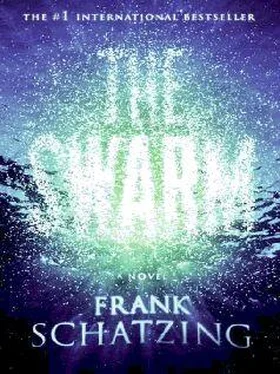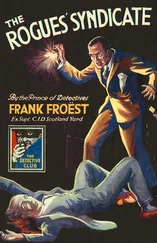Do something out of the ordinary.
Asking Indians for advice would certainly be that. Whether it would be helpful was a different matter.
Anawak gave a sour smile. It was the kind of thing he usually avoided like the plague.
Although he'd lived in Vancouver for twenty years, he didn't know much about the local peoples, mainly because he'd never tried to find out. Every now and then he felt a yearning for their world, but suppressed it before it could take hold. He found it too embarrassing. Delaware had mistaken him for a Makah, but he was the least suitable person to grapple with Indian myth.
Other than Greywolf.
It's pathetic, he thought bitterly. No self-respecting Indian ran round with such a lame-assed Wild-West surname. All the chiefs were called Norman George or Walter Michael or George Frank. None called themselves John Two Feathers or Lawrence Swimming Whale. Only arrogant jerks like Jack O'Bannon indulged in that kind of nonsense.
Greywolf was an ass.
And as for himself. . .
They were as bad as each other. Greywolf tried to be an Indian, and wasn't; while he looked like an Indian and was determined not to be one.
His goddamn knee had started him thinking, and he didn't want to think. He didn't need Alicia Delaware to send him back along the path he'd come.
Who could he ask?
George Frank was a chief he knew. He wasn't exactly a friend, but he was a nice guy, who also happened to be the taayii Haw'ilh of the Tla-o-qui-aht, one of the Nootka lands from the Wickaninnish area. A Haw'ilh was a chief, but a taayii Haw'ilh was a step up from that – a head chief. The taayii Haw'ilh were a bit like the British monarchy: their status was hereditary. These days, most bands were governed by elected councillors, but the hereditary chiefs were still respected.
In the north of Vancouver Island the big chiefs called themselves taayii Haw'ilh , but in the south they were called taayii chaachaabat . George Frank, he guessed, was more likely to be a taayii chaahat . Maybe he'd avoid Indian words.
He could easily visit the chief- he lived a short distance from the Wickaninnish Inn. The more he thought about it, the more he liked the idea. Instead of waiting for Ford's call, he could break the cycle and see where it took him. He found Frank's number in the phone book and called him.
'SO YOU'RE HERE to ask about the whales,' said Frank, thirty minutes later, as they wound their way past towering trees with densely clad branches.
Anawak had explained why he had come. The chief scratched his chin. He was a small man with a wrinkled face and friendly eyes. His hair was as dark as Anawak's. Underneath his windcheater he was wearing a T-shirt with the slogan 'Salmon Coming Home'.
'I hope you're not expecting me to come up with an ancient Indian proverb.'
'No.' Anawak was pleased with this. 'It was John Ford's idea.'
'Which one?' Frank smiled. 'Ford the movie director, or Ford the director of the aquarium?'
'The movie director's dead, I think. We're trying any angle we can think of. Even if it's just a tip-off from an old story. Maybe something similar happened in the past.'
Frank pointed to the river they were following. The water gurgled past, taking twigs and foliage with it. Its source was in the mountains, but in places its path was blocked with silt. 'Your answer's right here.'
'In the river?'
Frank grinned. 'Hishuk ish ts'awalk?
'I thought Indian folklore was out?'
'Don't worry, I'm done now. Actually, I assumed you'd know it.'
'I never learned your language. Sure, I picked up a few phrases here and there, but no more.'
Frank looked at him intently. 'Well, it's the central teaching of just about all Indian culture. The Nootka like to claim it for themselves, but I expect others say the same thing in different words. "Everything is one". If anything happens to the river, it affects humans, animals and the sea… If one thing changes, everything else does too.'
'Ecology, in other words.'
Frank bent to free a branch caught in the tangle of roots obstructing the river. 'I don't know what to say, Leon. We don't know any more than you do. I can listen out for you, and I'll make a few calls. We've got plenty of songs and stories, but none that might help you. You'll find what you're looking for in all our stories, and that's the problem.'
'I don't follow.'
'Our notion of animals is different to yours. The Nootka have never taken the life of a whale. Whales give their lives to the Nootka, and that's different – it's a conscious act, do you see? In the belief system of the Nootka, all nature is conscious – it's one big interconnected consciousness.' He turned down a boggy path. Anawak followed. The forest cleared into a large, barren space, empty of trees. 'Just look at the state of it. Shameful. The wood's gone, the soil's being eroded, and now the river's no better than a sewer. You only need to see this to know what's wrong with the whales. Hishuk ish ts'awal .'
'Have I ever told you what my research is about?'
'You're looking for consciousness, aren't you?'
'Self-consciousness.'
'You told me last year. We had a good chat that evening. I drank beer and you drank water.'
'I don't like alcohol.'
'Never drunk it?'
'As good as.'
Frank stopped. 'Hmm, alcohol. You're a good Indian, Leon, keeping away from alcohol and coming to me because you think we might have some secret native knowledge.' He sighed. 'When will people ever stop treating each other like clichés? The Indians used to have an alcohol problem and some still do, but most of us just like the occasional drink. Yet as soon as a white guy sees an Indian with a beer, he thinks, Oh, how tragic, we drove these people to drink. On the one hand we're stray lambs, and on the other we're custodians of ancient wisdom. But how about you Leon? What are you? A Christian?'
Anawak wasn't too taken aback. The few times he'd talked to George Frank in the past, the conversation had meandered freely. The taayii Haw'ilh jumped like a squirrel from one topic to the next, ostensibly at random. 'I don't belong to any church.'
'I studied the Bible once, you know. It's full of ancient truths. Ask a Christian why the wood is burning, and he'll tell you that God is in the flames. He'll refer you to the ancient stories, and there you'll find a burning bush. But is that how a Christian would explain a forest fire?'
'No, of course not.'
'Exactly – and yet any true Christian treasures those stories. Indians believe in their ancient stories too, but not because they think they're real . Our stories don't describe how such-and-such a thing actually is. They describe the idea of it. In our stories you'll find everything and nothing, because you can't take anything literally, yet it all makes sense.'
'I know, George. It's just that we don't seem to be making any progress. The whales have gone mad, and we're tying ourselves in knots trying to figure out why.'
'And you think science can't help.'
'That's how it looks.'
'There'll be a way. Science is a marvellous thing and people work wonders with it. But it's a question of finding your focus. So far you've been looking at the whales. All of a sudden your old friends are enemies. Why? Could it be something we've done to them or to their world? What you need to realise is that their world is our world . If you look for things that affect the whales directly, there's no shortage – pointless slaughter, chemicals in the water, tourism gone mad… We're destroying the food chain and polluting the oceans with noise. We've even depriving them of the places they raise their young. Aren't there plans to build a salt plant in the Baja California?'
Читать дальше












